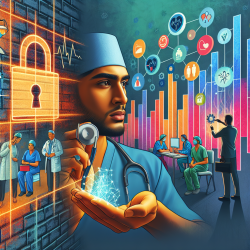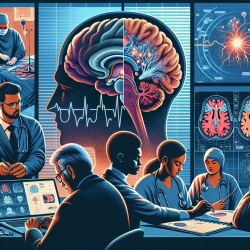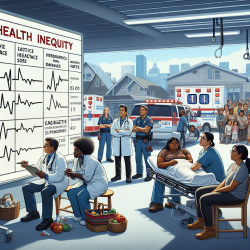Introduction
The COVID-19 pandemic forced many educational institutions, including those in laboratory medicine and pathology, to rethink and reshape their educational strategies. The rapid shift to virtual platforms brought about challenges but also unveiled opportunities for innovation and improvement. As a practitioner, you can leverage these lessons to enhance your skills and adapt to the evolving educational landscape.
Embracing Virtual Learning
The transition to virtual learning platforms such as Zoom, Skype, and Blackboard became essential during the pandemic. Practitioners can enhance their skills by:
- Participating in online webinars and virtual conferences to stay updated with the latest developments in their field.
- Utilizing virtual platforms for collaborative learning and discussions with peers and mentors.
- Engaging in virtual journal clubs to explore new research and share insights.
Innovative Educational Strategies
The Mayo Clinic's Department of Laboratory Medicine and Pathology implemented several innovative strategies during the pandemic, which can be adopted by practitioners to improve their skills:
- Virtual Sign-Out Sessions: Use virtual platforms to conduct real-time case discussions and consultations.
- Hybrid Learning Models: Combine in-person and virtual learning to maximize flexibility and accessibility.
- Recorded Lectures: Access recorded sessions for review and deeper understanding of complex topics.
Fostering Engagement and Interaction
Maintaining engagement in a virtual environment can be challenging. Here are some tips to foster interaction and active participation:
- Encourage participants to keep their video feeds on during sessions to enhance interactivity.
- Utilize breakout rooms and polls to facilitate small group discussions and feedback.
- Incorporate flipped classroom approaches by providing pre-session materials for review.
Looking Ahead: Post-Pandemic Education
As we move towards a post-pandemic era, it's crucial to integrate the lessons learned into future educational practices. Consider the following:
- Continue using virtual platforms for remote learning and collaboration.
- Adopt hybrid models for events and conferences to increase participation.
- Utilize digital tools for assessments and feedback to streamline the evaluation process.
Conclusion
The COVID-19 pandemic has been a catalyst for change in education, particularly in laboratory medicine and pathology. By embracing virtual learning, adopting innovative strategies, and fostering engagement, practitioners can enhance their skills and prepare for future challenges. To delve deeper into the research and insights from the Mayo Clinic's experience, read the original research paper.










